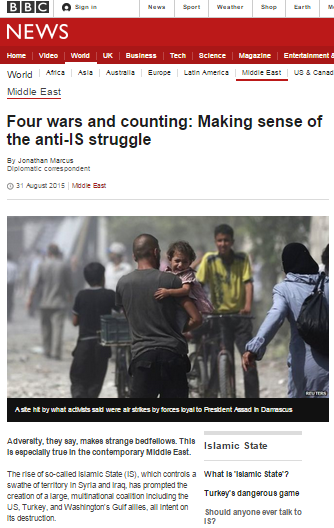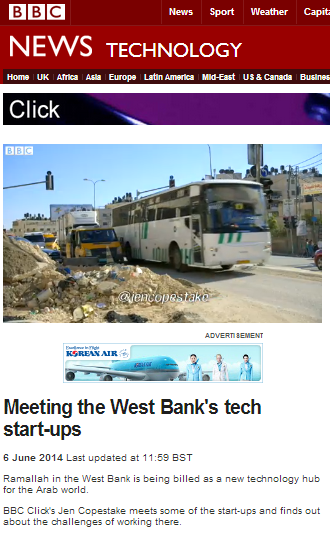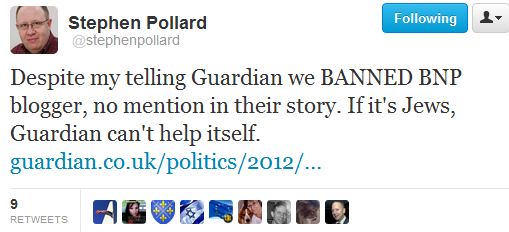An article by the BBC’s diplomatic correspondent Jonathan Marcus which appeared in the ‘Features’ section of the BBC News website’s Middle East page on August 31st under the title “Four wars and counting: Making sense of the anti-IS struggle” once again provides some interesting insight into the BBC’s Middle East narrative.
The article opens as follows:
“Adversity, they say, makes strange bedfellows. This is especially true in the contemporary Middle East.
The rise of so-called Islamic State (IS), which controls a swathe of territory in Syria and Iraq, has prompted the creation of a large, multinational coalition including the US, Turkey, and Washington’s Gulf allies, all intent on its destruction.
So too of course is Iran and, not surprisingly, Israel. This has resulted, for example, in pro-Iranian militias in Iraq appearing to be on the same side as the US.”
Marcus does not provide any supporting evidence for his dramatic claim that Israel is “intent” on the “destruction” of ISIS. Of course a more accurate and realistic portrayal would have clarified to readers that Israeli policy is to prevent ISIS, groups affiliated with it, or any other Islamist extremist elements from undermining her security – as clarified by the Israeli prime minister in July of this year.
“We are partners with the Egyptians, and many other states in the Middle East and the world, in our battle against radical Islamic terrorism. This terrorism is directed by two different entities – Iran, and the radical Shiites, and ISIS and the radical Sunnis, as well as factions like Hamas.”
And:
“The world is facing two major threats, he [Netanyahu] said, the Islamic State threat, and the Iranian threat. “We should not strengthen one at the expense of the other,” he said, “we need to weaken both and prevent the aggression and military buildup of both of them.””
Later on in the article, the subject of Iran and its proxies is presented in muted language which does little more than obliquely hint at the real scale and significance of that issue and does nothing to clarify to BBC audiences exactly why so many actors in the region regard Iran as a very real threat.
“America’s Gulf allies – the Saudis and Qatar for example – have also been supporting various groups in Syria but they have had their eye very much on a second war: the battle against Iranian influence in the region exemplified by the embattled Syrian regime of President Assad and his (and Iran’s) Hezbollah allies from Lebanon.[…]
For the Gulf Arabs, the struggle against Iran is every bit as important as the battle against IS – possibly even more so. […]
The counter-Iranian struggle is also being played out in Yemen where the Saudis and their allies have intervened militarily […]”
Under the sub-heading “Israeli alliances”, towards the end of the article readers find the following:
“Indeed a fifth “war” – the region’s longest-running conflict – that between Israel and the Palestinians is also being influenced by the rise of IS.”
Some of course might question that description of the Israeli-Palestinian conflict as “the region’s longest running” and exactly how it is supposedly “being influenced by the rise of IS” is left unclear. Marcus continues:
“The collapse of Syria as a military player is a mixed blessing for Israel.
IS-inspired groups are active on both its northern border and in Egypt’s Sinai Peninsula. But the rise of IS (and a shared concern about Iran) has brought Israel and the so-called moderate Arab states closer together.
The most obvious manifestation of this are the growing military ties between Israel and Jordan. Israel has sold or transferred both attack helicopters and drones to Amman over recent weeks.
There are reports too that when Israeli and Jordanian warplanes flew to the US recently for a multinational exercise, the Jordanian F16s were accompanied on their transit by Israeli tanker aircraft.”
Jordan and Israel of course signed a peace treaty over two decades ago and collaboration in various fields is not novel. But even if that unverified report from one American website about accompanying Israeli aircraft and the similarly unconfirmed statement concerning retired helicopters originating from one anonymous Pentagon official do indeed prove to be correct, what is remarkable here is that Marcus puts the focus on ISIS as the reason for apparently extended ties between “Israel and the so-called moderate Arab states” whilst relegating the issue of Iran’s nuclear programme and the theocratic regime’s patronage of regional terrorist groups to a euphemistic comment in brackets.
He concludes:
“While all of the attention of analysts has been focused on the potential collapse of two existing countries – Syria and Iraq – the real driving force in regional politics is the response to the rise of two putative new states, the caliphate of Islamic State on the one hand, and the potential emergence of a new Kurdish nation of some kind on the other.
It is not just the demise of the old order that is forging unusual alliances, but the shock of the new.”
What Marcus coyly describes as “a shared concern about Iran” is obviously a no less “real” and important factor in contemporary Middle Eastern “regional politics” than ISIS or a potential Kurdish state. However, as has been the narrative in much of the BBC’s previous reporting, the issue of Iran’s destabilization of the region (particularly in Syria where its backing of the Assad regime has resulted in far more civilian deaths than those caused by ISIS) is downplayed and audiences are once again deprived of the full range of information needed to build a “global understanding of international issues”.
Related Articles:
BBC amplification of unchallenged Iranian messaging
BBC amplification of Iranian regime charm offensive misleads audiences




